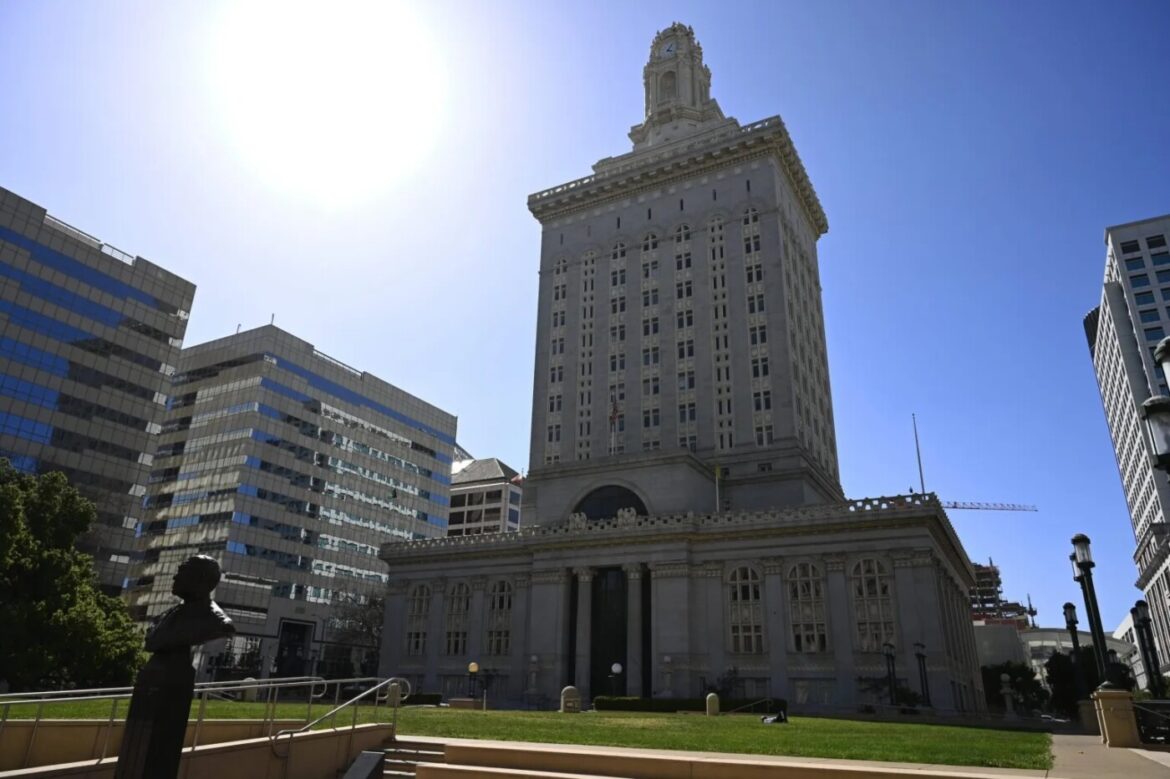The city of Oakland is facing millions of dollars in potential service cuts as part of its ongoing structural budget deficit, with some cost-cutting measures already underway, according to a report presented to the City Council on Tuesday.
During a presentation on the preliminary state of the city’s budget, councilmembers were told that the city is dealing with a roughly $80 million operational deficit and that difficult decisions are looming on the horizon.
“Our revenues came in less than what we expected and our expenditures came in less than we expected, but combined there was still the operating deficit,” said Oakland director of finance Erin Roseman.
Any spending adjustments will happen after Nov. 19, when final financial numbers are available, but meanwhile the city is operating on a so-called “contingency budget” that kicked in after payments for Oakland’s $125 million sale of the Coliseum were rescheduled.
When the City Council passed a budget in July, it was partly based on a September deadline for initial payments from the African American Sports and Entertainment Group, which were to be spent on services.

When those payments were rescheduled, the city administrator initiated several contingency cuts, including a hiring freeze and business travel prohibitions. Department heads were also asked to move any eligible expenses out of the general fund and to look for alternative sources of funding.
Those adjustments, however, even when combined with the city’s $93 million general fund balance from last year, weren’t enough to overcome the ongoing structural budget shortfall.
The ‘best case’ scenario
“This means at best case we will end this fiscal year underwater by $16.5 million. That’s the best case,” said city budget administrator Brad Johnson, adding that while that number will likely increase, the city has yet to reach the criteria for triggering a fiscal emergency.
Johnson said that preliminary spending data for the first quarter of fiscal year 2024-25 shows the city’s fire and police departments — which together account for about 75 percent of the budget — have so far combined to overspend general purpose funds by about $30 million, with the largest share of that, $26 million, coming from police.
He said that even if the city is able to balance its current budget, it’s still staring down the barrel of massive deficits in the next two-year budget cycle.
“As we look toward the biennial (budget cycle), regardless of where we ended last year or this year, we are projecting an ongoing $120 million structural deficit in the general purpose fund,” Johnson said.
“We need to figure out what we can give up, what we live without.”
Brad Johnson, Oakland budget administrator
“We need to figure out what we can give up, what we live without. And again, I expect that to come in November,” he said.
While the budget choices seem grim, there were a few potential bright spots mentioned during Tuesday’s discussion, in addition to the anticipated one-time revenue from the Coliseum sale.
For example, there are two measures on Oaklanders’ ballots on Nov. 5 — Measure NN and Measure MM — that if approved would raise tens of millions of dollars in additional revenue annually for police and fire services.
Also, the city is still expecting $10 million from the sale of the old Oakland Raiders training facility, which could help offset some difficult spending choices.
The post More pain ahead: Oakland leaders get grim news on city’s looming $80M budget deficit appeared first on Local News Matters.

Oakland is losing business hand over fist. Commerce is revenue to the city. Business leaves because of crime. Oakland should plead with the state for more police assistance as the monies needed to build an adequate force are clearly not there. Oakland needs to usher in more tax paying homeowners, but again crime rates detract from our neighborhoods.
Low income home building that the city of Oakland is pushing through right and left does not offer as much tax base revenue to the coffers and so the problems are not mitigated they are compounded. People need jobs! Oakland needs a blitz on attracting businesses who can supply jobs and increase tax revenue. You will not fix the problems without dramatically changing what you are doing. There is also a limit to how much more you can tax single home owners; at some point you will lose them too. Example of another lost opportunity: Oak Knoll Community-business and homes development held a promise for increased tax base but Oakland has fumbled that for nearly 20 years now.
Time for successful business leaders to step up & govern. Time for successful business owners to offer a business development plan to offset the problems.
Oakland is a prime location but has lost touch with business owner & development needs, working instead on the backend of the problem.